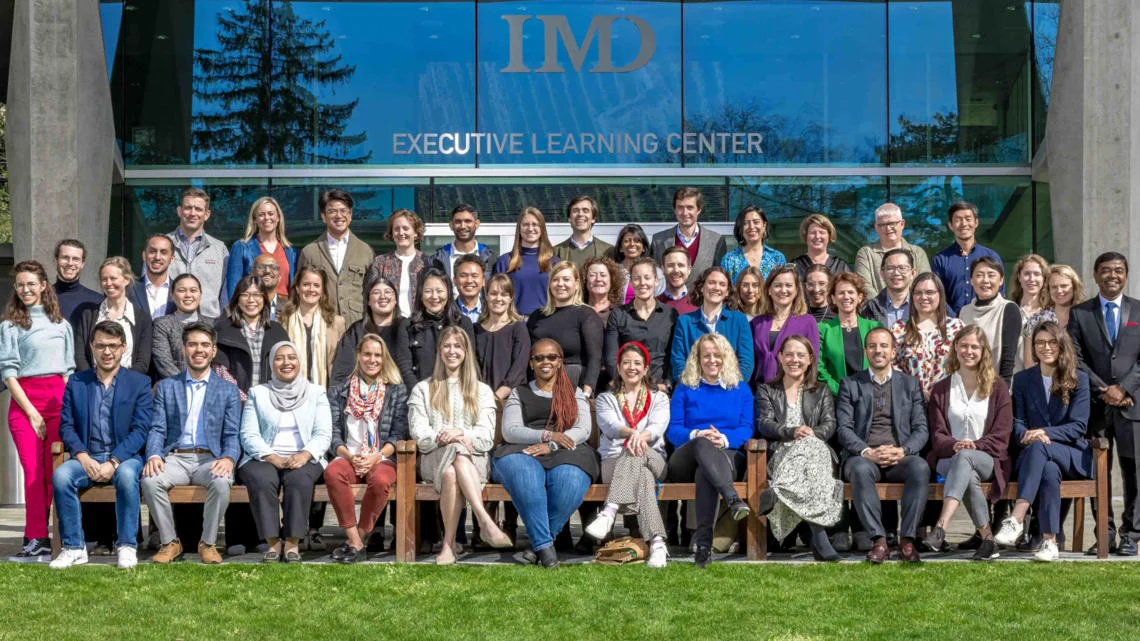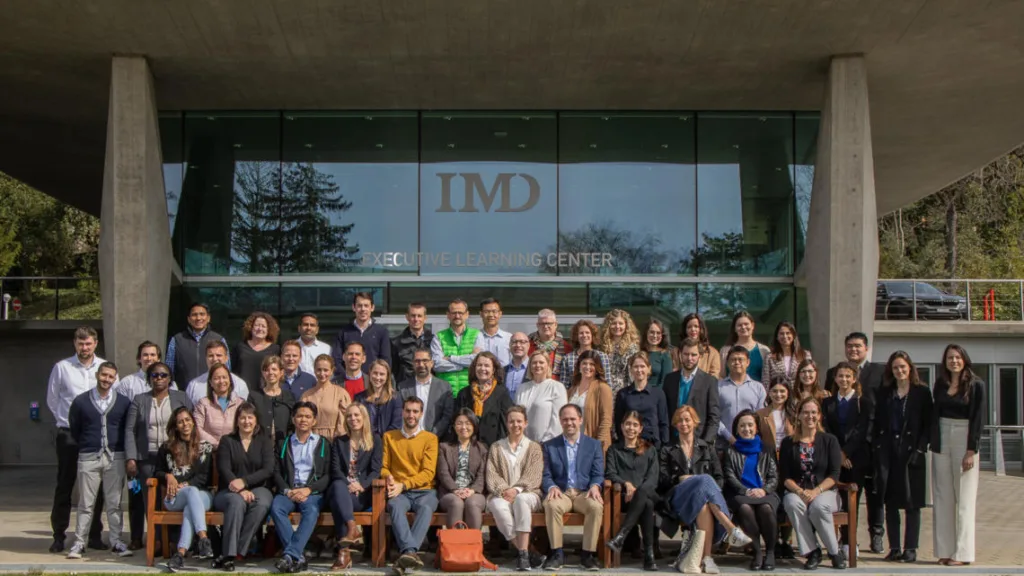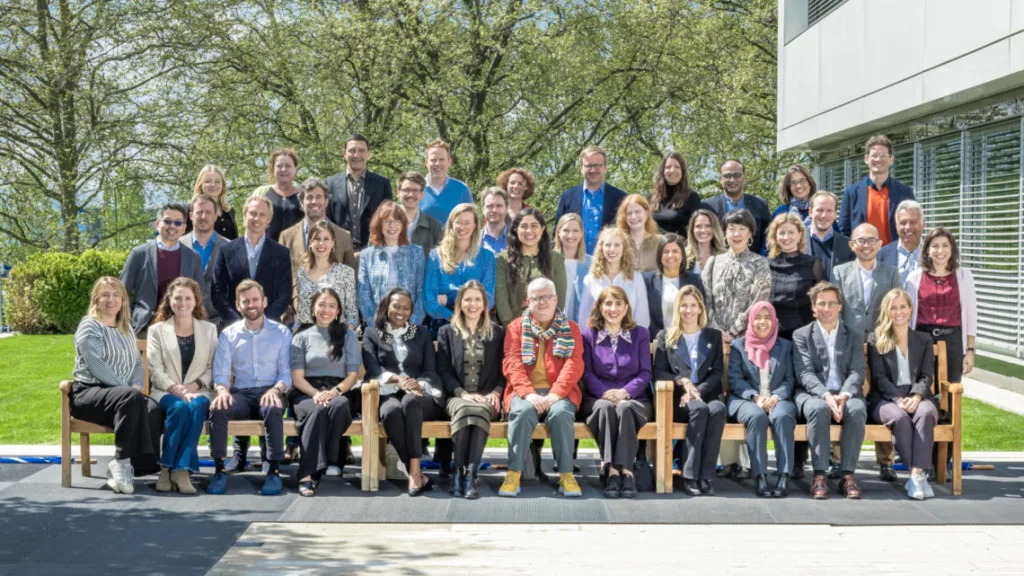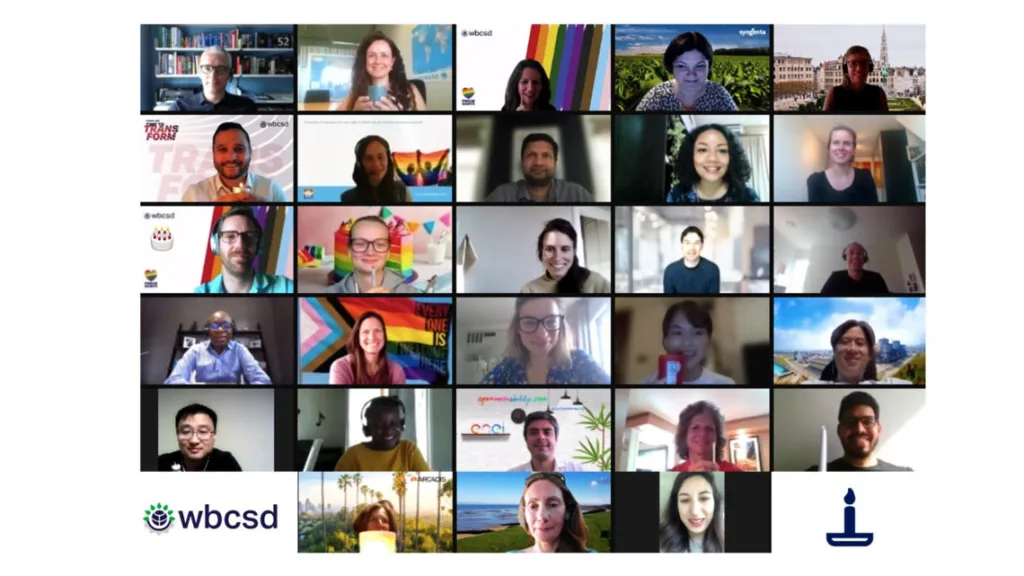Authors
Juan Bazaldua, Cyber, Risk & Regulatory (ESG) Manager at PwC
Coming to the WBCSD Leadership Program as a sustainability professional, I had my own preconceptions about how to characterize a leader in this complex field of sustainability. I thought they should have technical skills, business acumen, and a strong quantitative background to demonstrate the value of sustainability. However, a week at the innovative IMD Business School in Lausanne, surrounded by one of the most diverse and capable groups of people I’ve met, challenged my assumptions. There is so much more that entails sustainability leadership than I had imagined.
The week consisted of a series of workshops and lectures with thought leaders, academics, and industry practitioners. In turn, these were complemented by thorough reflections and sharing best practices among the participants, who came from all regions of the world and companies from a variety of industries. Although this group had different points of view over how businesses can address the challenges that climate change, nature loss and social inequities pose, I perceived we reached common ground on who each of us should become to lead sustainable change.
The sections below outline traits of a sustainability leader discussed by speakers and participants during training sessions. To capture the full insights gained, I interviewed fellow participants whom I believe embody these traits.
Insight 1: Purpose unites people and organizations
The first time I took a class dedicated to sustainability in business, I was immediately fascinated by the topic. Somehow, I felt at that moment that it was going to be a very important topic, and I wanted to make sure that I had the knowledge to help address it.
– Anastasia, Sustainability Manager at a Consulting Firm
I had the chance to meet Anastasia, who has been studying sustainability since 2009, and has made it her purpose to convince organizations that it is important. Through some of the experiences she shared, I truly understood that the largest and most successful organizations have evolved to search for a higher purpose, without which they wouldn’t attract the people able to thrive in a complex world.
Insight 2: Empathy is key
Empathy is key to understand where people are coming from and what drives them. Only then, we can try to convince them to bring positive impact to our people and planet in their daily actions and decisions. Supporting them in removing any barriers they can face to do so.
– Vanina, Head of Supplier Sustainability Performance at a Nutrition, Health and Beauty Company
I also met Vanina, whose work involves embedding sustainability into her company procurement strategy. My talks with her made me aware of just how important it is to understand where someone is coming from, to motivate them to join your cause. If it were not for empathy, she wouldn’t be able to convince her procurement fellows and suppliers to implement sustainable initiatives.
Insight 3: Courage will help you enact change where it matters most
One of the most valiant people I’ve met is Andrea, who is part of a company sometimes left out of the table when it comes to sustainability. I learned two things from her:
- Excluding companies from discussions only delays the transition to a better world.
- Being part of the solution in the face of criticism takes double the courage.
[The transition to a low carbon economy] is a big challenge, no one has done before. There’s no golden solution, so courage is essential to push boundaries.
– Andrea, General Manager for Carbon & Environment in the Supply Chain at an Energy Company
Insight 4: To transform, you must be transformational yourself
We are going through a transformation, we feel empowered that this will enable more entrepreneurial ingenuity, which leads to more customer-focused and sustainable outcomes.
– Cassio, Cloud Solutions Business Development Lead at an Agri-science Company
Cassio shared one of the most complex challenges I’ve heard, which is inverting the hierarchy of decision-making in a whole organization by empowering employees who have direct insight into customer needs with more decision-making responsibilities. Speaking with him, I became aware that companies that transform the value chain are leading by example by embracing transformation itself.
Insight 5: Leaders are inspiring
After much consideration, I could not decide on who to interview to support this insight because it became evident after our last session together, that I was inspired by every single one of the participants, who became friends by the end of the week.
As I close this first module, I would like to thank the WBCSD’s organizing team led by Rodney Irwin, Suzanne Feinmann and Hélène Servais for their dedication, as well as all the professors, speakers, and industry leaders who took the time to share their knowledge. They too, have contributed to a quote and belief that I hold close to my heart as I reflect on my experience in the Leadership Program:
Inspiration beats fear in driving change.
Outline



